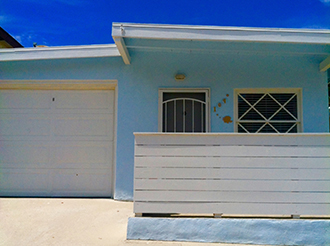(Important note for Travois clients: This guest blog from StrongHearts Native Helpline provides details on the exception to VAWA protections for Indian Housing Block Grant units funded solely through NAHASDA allocations. If you are a Travois client, VAWA protections MAY apply to your developments with federal, state or local sources for financing housing in Indian Country. Continue reading for more information.)
While most consider housing and shelter to be a fundamental need for all, access to both can be disparate in tribal communities. For American Indians and Alaska Natives (AI/AN), housing is in critical shortage. For AI/AN survivors of abuse, access to appropriate options are even more scarce, leading to additional vulnerability and a high risk of further victimization. The need for safe and affordable housing is one of the most pressing concerns for survivors of violence and abuse, as domestic and sexual violence is a leading cause of homelessness for women and children.
There are numerous laws in place that affect AI/AN survivors of abuse. For example, the Violence Against Women Act (VAWA) of 2005 had certain protections for individual survivors, including that a landlord could not discriminate against a victim simply because they had been victimized. When VAWA was reauthorized in 2013, these protections were expanded to include new options for survivors including the option for an emergency transfer, the option to bifurcate a lease, and the ability to self-certify their victimization.
Essentially, the reauthorization contemplated the many economic and financial strains that domestic violence can have on a survivor and how those strains are either affected by situations that arise from housing issues such as eviction or impact housing options.
While these provisions are applicable to most public federal housing funds, the U.S. Department of Housing and Urban Development (HUD) issued a final rule excepting Native American Housing Block Grants, meaning the expanded VAWA protections do not apply in Indian Country where these funds are solely used. (If you are a Travois client, VAWA protections MAY apply to your developments with federal, state or local sources for financing housing in Indian Country. Some common sources of financing in Indian Country that include VAWA protections are the Low Income Housing Tax Credit (LIHTC) program, Rural Development, HOME Investment Partnerships Program (HOME), Affordable Housing Program (AHP) grants, Capital Magnet Fund (CMF) grants, Veterans Affairs Supportive Housing (VASH) and various other types of HUD funding. It is recommended that housing partners check with the appropriate overseeing agency to verify if VAWA protections and regulations apply. Read about required lease addendums for initial move-in files here.)
The Native American Housing Assistance and Self Determination Act (NAHASDA) created the Native American Housing Block Grant (NAHGB), which recognized the rights of tribal self-governance and self-determination and included congressional findings that recognized the federal government’s unique relationship to tribes. Under NAHASDA, HUD is required to engage in “negotiated rule making” with tribes to develop any regulations required by amendment to the statute. At this point, it appears that HUD did not engage in negotiated rule making around the VAWA 2013 expanded housing protections for survivors of abuse. Therefore, the housing protections found in VAWA 2013 do not apply to Indian Block Grants.
Tribal domestic violence advocates, whose primary concern is the safety and security of victims of abuse, agree that change is needed. However, the exception in HUD’s final rule was an act in respecting tribal sovereignty, which is prioritized in our communities.
Aside from HUD’s final rule, tribal housing authorities enact their own housing codes as an exercise of sovereignty to include appropriate protections for survivors of violence. Prioritizing the need for self-certification, especially considering that American Indians and Alaska Natives who experience domestic violence are often unable or unwilling to engage with law enforcement in a meaningful way, is essential. American Indian and Alaska Native abuse survivors should have access to safe housing, regardless of whether they have a police report to validate their experience.
Regardless of whether these protections from VAWA 2013 apply or do not apply, safe housing is only possible if there is actual housing available. Unfortunately, there is a housing crisis in Indian Country with the pervasiveness of homelessness being a serious concern.
According to a recent HUD report, 34 percent of AI/AN households had one or more physical problems, as compared with 7 percent for U.S. households.[i] 57 percent of AI/AN households had one or more identified housing problems of any kind compared with 40 percent of U.S. households overall.[ii] For the 2013-2105 period, around 33,000 new units would have had to been built to eliminate overcrowding of the AI/AN population in tribal areas and another 35,000 new units to replace units that were severely physically inadequate.[iii] The shortages illustrated with these statistics show that housing in Indian Country is yet another vulnerability that American Indians and Alaska Natives have inherited. But this vulnerability is one that survivors of domestic violence and their children simply cannot afford.
Without adequate housing on tribal lands, victims of abuse and their children are often forced to leave their ancestral home, which can be a place of significant cultural meaning for the individual. They may have to leave their tribal community all together. Victims of abuse may be forced to use non-tribal shelters or shelters that cannot address their needs on a peer to peer basis and/or lack cultural relevance and understanding. Oftentimes, victims may even be forced to return to their abuser. In each instance, choice is merely an illusion.
Interested in learning more about victim-centered tribal housing codes? Email Caroline LaPorte (immediate descendant of Little River Band of Ottawa Indians), senior native affairs policy advisor for the StrongHearts Native Helpline, at claporte@strongheartshelpline.org to begin a conversation about ways to support survivors of abuse in your community.
The StrongHearts Native Helpline (1-844-7NATIVE) is a safe, anonymous and confidential service for American Indian and Alaska Natives affected by domestic violence and dating violence. For support, call 1-844-762-8483 Monday through Friday from 9 a.m. to 5:30 p.m. CT. Callers after hours may choose to connect with the National Domestic Violence Hotline or call back the next business day. More information can be found at strongheartshelpline.org.
[i] https://www.huduser.gov/portal/sites/default/files/pdf/HousingNeedsAmerIndians-ExecSumm.pdf
[ii] https://www.huduser.gov/portal/sites/default/files/pdf/HousingNeedsAmerIndians-ExecSumm.pdf
[iii] https://www.huduser.gov/portal/sites/default/files/pdf/HousingNeedsAmerIndians-ExecSumm.pdf
Related blogs:


